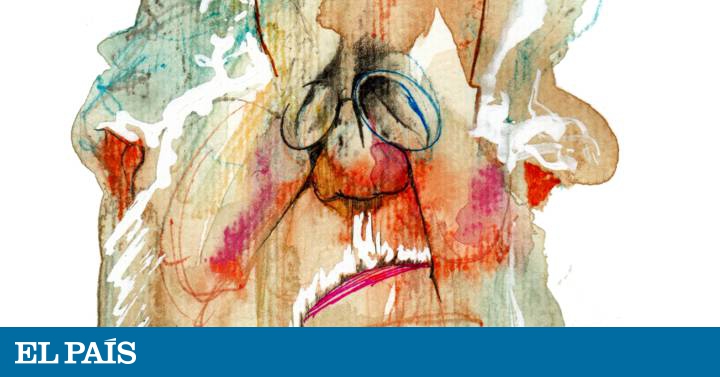The fact of keeping a newspaper can respond to many motivations and none of them excludes others that may concur, but, in any case, whoever writes it builds a space dominated by subjectivity. A space that oscillates between the desire to know about oneself, the passage of time and a certain yearning for truth, that is, for self-knowledge. In a way, it is a space that has a lot in common with the space of psychoanalysis, since in both we find an Ego confronted with its psychological conflicts and the need to achieve clarification of them through the word. Not all newspapers respond to this pattern, obviously, but we do find it in those diaristic writings that we appreciate the most, those that express some form of discomfort for the subject. In this sense, the contemporary newspaper is far from its first enlightened manifestations, when authors such as Samuel Pepys or Jovellanos noted with satisfaction the profit they made from their days. From that self pleased by its own interaction with the world, the fruit of an incipient bourgeoisie, we have reached the almost opposite extreme, when dissatisfaction and awareness of precariousness are traits that have invaded contemporary diarism. "He is the confidant of pain, not happiness," Amiel already notes on May 13, 1847.
The Colombian writer Héctor Abad Faciolince (Medellín, 1958) has just published, to the surprise of his readers, that we are many, a thick volume with his newspaper written between 1985 and 2006, that is, between his beginnings as a writer and the publication of The oblivion that we will be , the work that would mark a turning point in his career. Written then between 27 and 48 years, without a doubt a crucial stage in the life of the adult. In the prologue two relevant things are recognized: that the publication of the newspaper responds to a moment of creative crisis (his novel project fails and for a writer who has made literature his profession, the need to publish regularly is an imperative ) and that the newspaper has been, logically, edited.
Editing a diary, being a compulsory task —no diary can be a faithful copy of the original notebooks: it would be, Lejeune believes, like introducing a homeless person to an elegant living room—, sometimes involves a complete remodeling of the text, being lost thus the flavor of the original document, which, in general, has little to do with a narrative structure: repetitions, fractures and textual gaps, references that lack continuity and the presence of an Ego that absorbs the entirety of writing. Therefore, the fundamental question is that in the passage from the newspaper to the book, that I sustains the interest of a third party. And, without knowing Abad's original notebooks, there is no doubt about the honesty with which the writer has proceeded. In this sense, it reminds me of the newspapers published to date by Laura Freixas. Both maintain throughout their pages a very high level of exposure of their own privacy.
Abad's cut is longer, 20 years, and the reading of What was present requires entering the writer's universe: the strong presence of the Italian in his life (the newspaper opens with the married writer, expecting his first child and living in Turin, where he is preparing his doctorate), his doubts regarding literature as a vocation, his infatuation (“this anguish of wanting to love all women”), the weight of Colombia in its imaginary split to the Cortzarian between the world over there and over here ... In 1987, and after finishing the thesis on Cabrera Infante, the couple returned to Medellín and a few days after their arrival they murdered the father of the budding writer for political reasons. That brutal and gratuitous act of violence forces a young Héctor Abad to rethink his position before the world. What to do? Inherit the militancy of his father, risking his life at every step in the future, or avoid the commitment by fleeing a bloody country? The entry of December 21 (1989) seems to me of a sincerity that, as a reader, I can only thank.
However, the most attractive thing about Abad's diary lies in his ability to write about his marital and love life (we soon found that they do not have to go hand in hand, and they do not go) with a very unusual level of exploration. The way in which the frankness of the feelings is combined with the respect towards the maintained relations is admirable and belies Amiel's judgment when he observed: "The newspaper cannot be exact or complete in intimate matters, at least a masculine newspaper" ( June 16, 1866). Not being exact or complete (and who could be?), Abad's diary addresses the topics most closely related to masculinity without false modesty, head-on. Those related to female sexuality, seen by a man, are also analyzed with similar frankness.
I stop at one of the many situations that arise: the newspaper opens with the conjugal purchase of a notebook: "We have bought the notebook together and he knows what it is for," says Abad. And the diary will flow freely. The wife respects the writer's privacy and he feels protected by his discretion. When they separate, the new couple maintains a very different attitude, reluctant to Abad's diary, so that his habit of recording erotic life in some detail and without idealizations is necessarily self-conscious, recovering when the couple breaks up. It breaks, it rebuilds, it breaks again. Twenty years of a life go a long way and the intensity with which Abad Faciolince writes of his own subdues. That life that was already becomes ours.
SEARCH ONLINE 'WHAT WAS PRESENT (DIARIOS 1985-2006)'
Author: Héctor Abad Faciolince.
Publisher: Alfaguara, 2020.
Format: softcover (610 pages, 20.90 euros) and ebook (11.99 euros).
Find this title in your nearest bookstore

